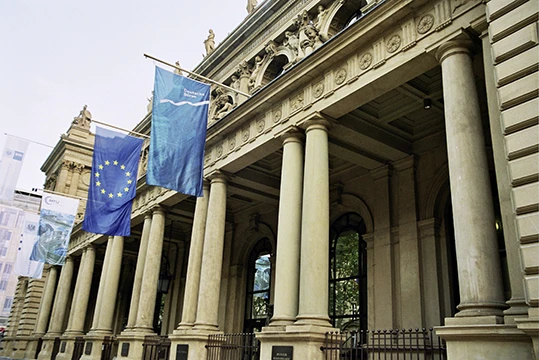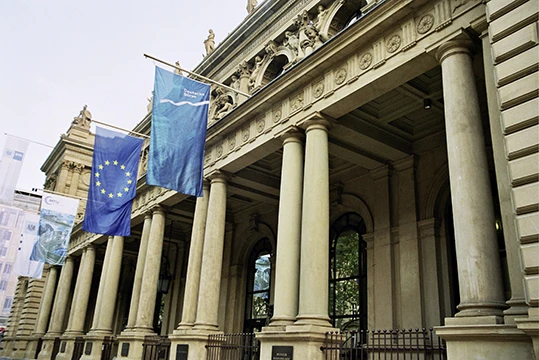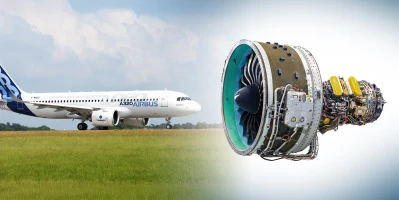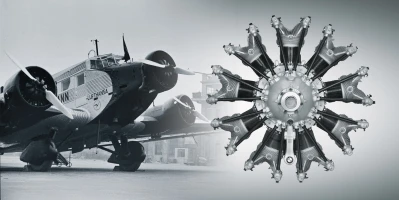people
Twenty years ago: MTU becomes a stock corporation
From the 2005 IPO to the DAX entry in 2019: MTU’s trajectory has been marked by 20 years of consistent progress.
author: Eleonore Fähling | mins reading time published on: 09.09.2025
author:
Eleonore Fähling
has been on the AEROREPORT editorial team since 2014 and in charge of the MTU employee magazine since 1999. As an aerospace journalist, she specializes in aviation history and market topics.
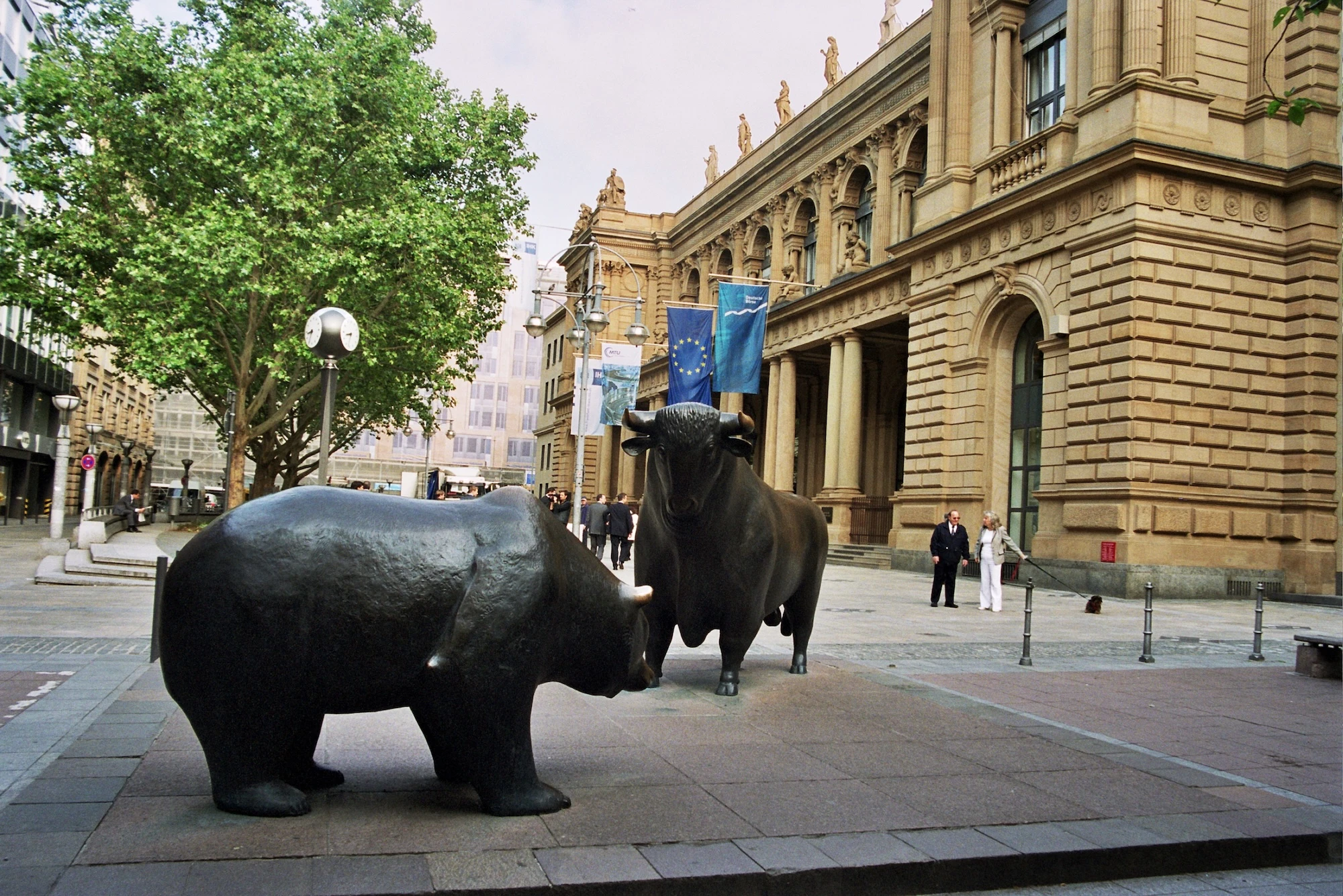
The point of no return came in April 2005: For six hours, MTU’s executive management presented its business model, using facts, figures, and data to underline the potential of an investment. The audience was made up of analysts from the syndicate banks, who would subsequently approach potential investors with their reports. This marked the beginning of the strictly timed preparations for MTU’s debut on the stock market, known as an initial public offering, or IPO.
Everyone involved had just under two months to get everything done. A completely new technology gadget proved extremely helpful: the Blackberry. This early smartphone, complete with its own keyboard, made it possible to read and reply to e-mails anytime and anywhere—a real step forward for coordination between banks, lawyers, the owner KKR, and the MTU employees involved. “During a roadshow that included eight international financial centers, the company presentation was held 53 times in just ten days,” recalls Claudia Hein, Senior Investor Relations Manager at MTU.
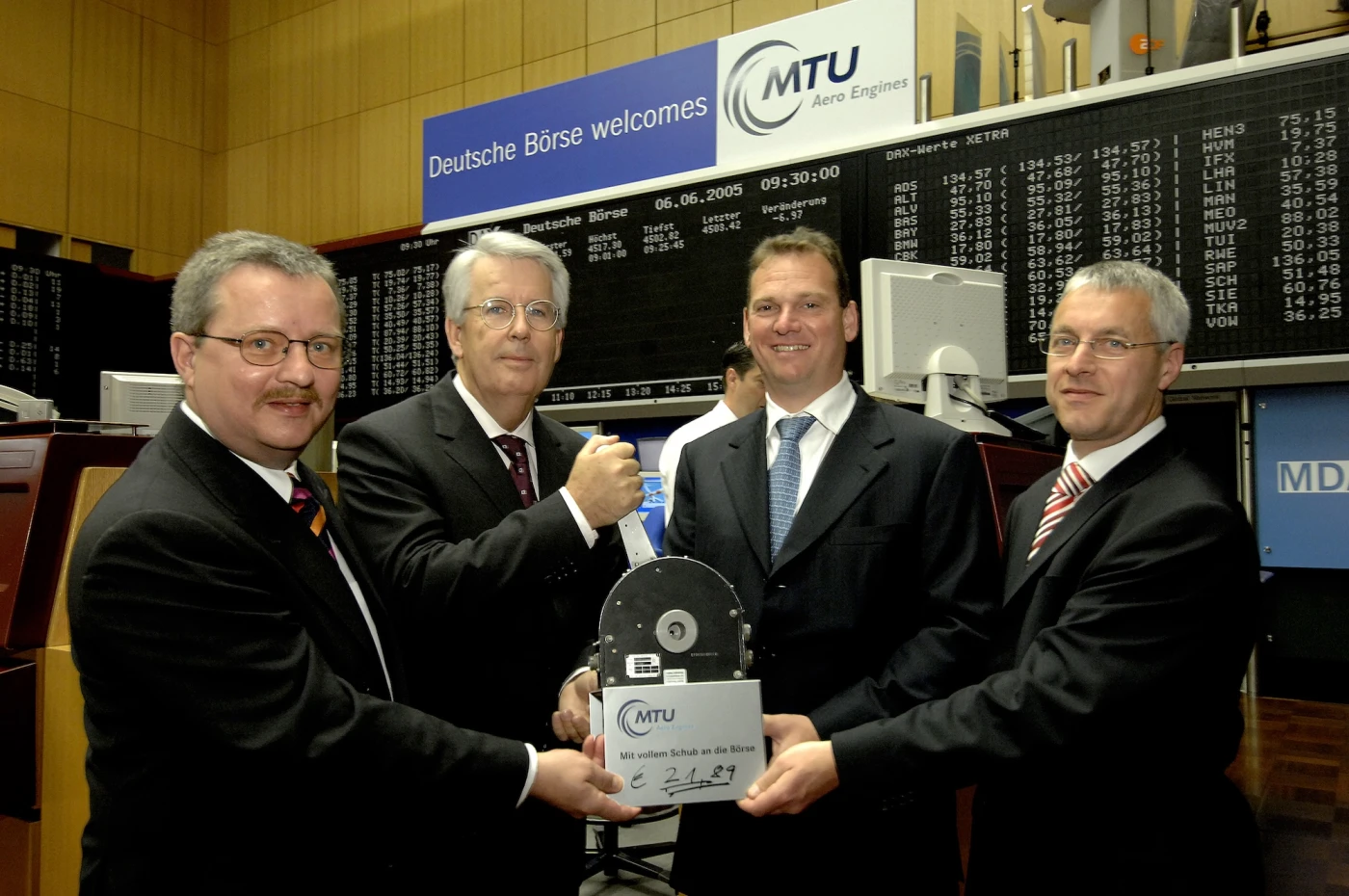
MTU Aero Engines Holding AG’s board presenting the thrust lever on the trading floor of the Frankfurt Stock Exchange.
You may also be interested in following content

Key data for shareholders
Figures. Facts. Outlook. Learn more about what’s happening at MTU Aero Engines.
Most successful IPO of 2005
The IPO on June 6, 2005, was a success: MTU’s four Executive Board members used a real EJ200 thrust lever to symbolically give the starting signal for an impressive growth story. The initial share price was 21.89 euros; on June 25, 20 years later, the value of each share has increased sixteenfold. This development makes MTU the most successful company to debut on the stock market in 2005 and has seen in outperform the market over two decades.
Its shares were seven times oversubscribed and investor interest was correspondingly high. Unlike many other IPOs of 2005, MTU’s shares gained 24 percent in their first year. This is because the aviation industry recovered faster than expected from the crises of the early 2000s—a development that analysts and investors were quick to recognize.
Following the exit of financial investor KKR in January 2006, MTU became fully free float—a status the company has retained to this day. Large individual shareholders such as BlackRock and DWS each hold less than 10 percent. The participation of the company’s own workforce is particularly noteworthy: An annual employee share program has been in place since 2008, in which around 4,000 employees now regularly participate—a rate of 45 percent.
Growth despite crises
MTU has experienced virtually uninterrupted growth ever since. While the 2008 financial crisis did lead to a short-term slump, in which the share price fell to an all-time low of 12.87 euros, by February 2009, it was back above the issue price. From this point onward, the shares showed impressive momentum: They passed the 100-euro mark for the first time in 2016 and broke through the 200-euro mark in 2019. In September of the same year, MTU was promoted to the DAX: a milestone that finally brought the company into the premier league of the German economy. According to manager magazin, in 2019 MTU was the “DAX winner of the year” with a 61 percent increase in its share price.
The main reason for the continued success on the financial market is the company’s solid business performance. “We’ve repeatedly demonstrated resilience in crises with our three business segments and confirmed that we deserve an investment grade rating from the rating agencies,” says Thomas Franz, Vice President Investor Relations at MTU.
Three-segment strategy pays off
In 2020, the coronavirus pandemic caused a massive slump in air traffic—and in the MTU share price, too, which fell to around 120 euros. But the company reacted prudently: Instead of cutting staff, it opted to introduce short-time working and keep its qualified workforce on board. As the industry gradually recovered, the share price also rose steadily again. MTU’s stakes in engine programs and maintenance licenses—especially for narrowbody aircraft such as the A320 family—are now paying off. Compared to MTU’s commercial engine development and production business and its maintenance business, the military engine business is smaller, but it ensures stable capacity utilization and brings additional resilience.
Despite challenges such as the GTF fleet management plan, MTU’s shares reached the 300-euro mark at the end of October 2024. In June 2025, exactly 20 years after the IPO, the share price was over 350 euros. “Some banks are currently giving us price targets of well over 400 euros,” Franz says. That means MTU has become established not only as a technological leader in aviation but also as a reliable figure on the stock market. The company’s continuous increases in revenue and earnings, coupled with a stable shareholder structure and strong employee loyalty, make it a prime example of 20 years sustainable stock market success.



